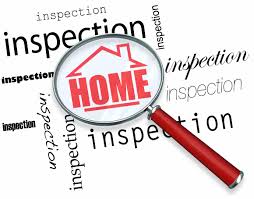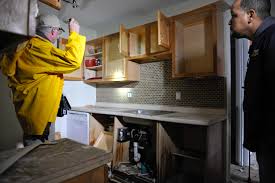|
Did you just purchase property? Although Escrow prorated the property tax when in escrow and gives appropriate credit between the buyer and seller, the actual taxes may not have been paid and you are responsible for any un-paid taxes at the close of escrow. Read your escrow papers and or Title report to determine if any portion of the annual taxes were paid by the previous owner before the close of escrow. If any taxes remain unpaid, Call the tax Collector and request a bill. When you call, give the Assessor's Parcel Number or Identification Number from the previous tax bill, the property address and/or the legal description. State Law stipulates that Failure to receive a Tax Bill does not Permit the Tax Collector to excuse Penalties on Late Payments! Impound Accounts If your taxes are paid through an impound account (which is included in your mortgage payment), your Lender will receive your annual tax bill, and you will receive an informational copy for your records. Important Note: In addition to the annual taxes, new purchases you will probable be responsible for paying a supplemental property tax. The supplemental property tax bill is sent to the owner only and must be paid. Consider sending a copy of the supplemental bill to your lender, Especially in the event taxes are paid through your impound account. Dates to remember; 1. January 1, First day to File "Decline-in-Value" 2. February 1, Second installment of Real Estate taxes are Due (Delinquent after 10-April) 3. November 1, First Installment of Real Estate taxes is Due ( Delinquent on 10-December) 4. December 31, Last day to file a "Decline-in-Value" JD Moshier
1 Comment
Have you ever wondered how property taxes are determined? Property taxes are governed by California State Law and collected by the county Assessors office. The county assessor must first assess the value of your property to determine the amount of property tax. Generally the assessed value is the cash or market value at the time of purchase. This value can not increased more than 2% per year until the property is sold or new construction is completed on the property. The Auditor/Controller applies the appropriate tax rates, which include the general tax levy, locally voted special taxes and city or district directed assessments. The Tax Collector prepares the property tax bill based on the Auditor/Controller's calculations then distributes the bill, and then collects the taxes. Can You Disagree with the Amount? You may apply to the Assessor to see if that office will change the evaluation. Additionally, Appeals Boards have been established for the purpose of resolving valuation problems. Appeals on regular assessments may be filed between 02-July and 30-November. For Supplemental or Adjusted Property Tax Bills, a form appeal may be filed within 60 days of either 1. The mailing date printed on a Notice of Assessed Value Change. 2. The date of the mailing printed on the tax bill 3. The postmark date for the tax bill, whichever is later! Did You File an Appeal..., Remember to Pay the Appropriate Tax in FULL. If you do decide to choose an appeal, You must pay the disputed tax installments in Full by the appropriate deadlines or you may incur penalties on top of the tax. If your appeal is granted, A refund will be issued to you. Do you have questions? Call me. JD Moshier As the housing market heats up, you may be tempted to sell your home. But before you put your house up for sale, be honest with yourself: Market conditions aside, do you really want to sell right now? To help you get started, here are five signs you're ready to sell your house.
In today’s market, with home prices rising and a lack of inventory, some homeowners may consider trying to sell their home on their own, known in the industry as a For Sale by Owner (FSBO). There are several reasons why this might not be a good idea for the vast majority of sellers. Here are the top five reasons: 1. Exposure to Prospective BuyersRecent studies have shown that 95% of buyers search online for a home. That is in comparison to only 17% looking at print newspaper ads. Most real estate agents have an internet strategy to promote the sale of your home. Do you? 2. Results Come from the Internet Where did buyers find the home they actually purchased?
3. There Are Too Many People to Negotiate With Here is a list of some of the people with whom you must be prepared to negotiate if you decide to For Sale By Owner:
4. FSBOing Has Become More And More Difficult The paperwork involved in selling and buying a home has increased dramatically as industry disclosures and regulations have become mandatory. This is one of the reasons that the percentage of people FSBOing has dropped from 19% to 8% over the last 20+ years. The 8% share represents the lowest recorded figure since NAR began collecting data in 1981. 5. You Net More Money When Using an Agent Many homeowners believe that they will save the real estate commission by selling on their own. Realize that the main reason buyers look at FSBOs is because they also believe they can save the real estate agent’s commission. The seller and buyer can’t both save the commission. A study by Collateral Analytics revealed that FSBOs don’t actually save anything, and in some cases, may be costing themselves more, by not listing with an agent. One of the main reasons for the price difference at the time of sale is: “Properties listed with a broker that is a member of the local MLS will be listed online with all other participating broker websites, marketing the home to a much larger buyer population. And those MLS properties generally offer compensation to agents who represent buyers, incentivizing them to show and sell the property and again potentially enlarging the buyer pool.” If more buyers see a home, the greater the chances are that there could be a bidding war for the property. The study showed that the difference in price between comparable homes of size and location is currently at an average of 6% this year. Why would you choose to list on your own and manage the entire transaction when you can hire an agent and not have to pay anything more? Bottom Line Before you decide to take on the challenges of selling your house on your own, sit with a real estate professional in your marketplace and see what they have to offer, what do you have to lose? Sustainable Energy?
A solar panel on every house might sound good, but it isn’t smart climate policy. by James Temple | May 9, 2018 California will now require solar panels on most new homes, extending the state’s role in pushing some of the strictest environmental regulations in the United States. Recommended for You
The big problem with the California Energy Commission’s new mandate—which passed on May 9 and goes into effect in 2020—is cost. Compared with solar power plants, rooftop solar is “a much more expensive way of increasing renewables on the grid,” says Severin Borenstein, an economics professor at the University of California, Berkeley, who shared his concerns in a letter to one commissioner. In fact, residential solar systems cost between 12.9 and 16.7 cents per kilowatt-hour averaged over their lifetime, according to a National Renewable Energy Laboratory report last year. That’s more than double the cost of utility-scale solar systems, which range from 4.4 to 6.6 cents. As it is, it’s going to be incredibly expensive and difficult to overhaul the energy system, so researchers stress that it’s crucial to follow the most cost-effective paths possible (see: “At this rate, it’s going to take nearly 400 years to transform the energy system”). “I think there are indeed limited political resources that can be mustered against climate change,” Borenstein said in a follow-up e-mail. “By demonstrating a very expensive way to reduce greenhouse gases, I think this could very likely be used in other states and countries as an argument against moving toward renewable energy.” The new rule could add more than $10,000 to the costs of building a home, raising the price tag in what’s already one of the most expensive states to purchase housing. But buyers are expected to pay lower monthly energy bills as a result of this change and eventually save money over time. Borenstein notes that these savings are effectively subsidized by other ratepayers without solar panels, net metering, and solar tax credits. California has already made giant strides in adding renewable-energy generation, which has started to create its own set of problems. On very sunny days, the state’s solar plants can generate more energy than the system is able to use, pushing prices into negative territory (see “Texas and California have too much renewable energy”). Effectively integrating a growing supply of intermittent solar and wind energy will require adding far more storage, transmission, and smart grid systems. As it stands, the state’s grid operator lacks basic tools for monitoring, communicating, and reacting to a continually shifting supply of rooftop solar. California estimates that the new rule will cut emissions by 1.4 million metric tons over three years, which is a small fraction of the 440 million tons the state generated in 2015. As others have pointed out, policies requiring higher residential density would do far more to cut emissions, largely by discouraging people from driving cars. But such proposals are far more controversial than solar panels. Last month, California legislators killed a bill that would have overridden local rules to allow five-story housing development along transit centers. “While additional distributed renewable electricity will be helpful, California’s climate elephant in the room remains the greenhouse gases from people driving cars,” said Costa Samaras, an assistant professor of environmental engineering at Carnegie Mellon University, in an e-mail. “Increasing the density of housing near employment centers and encouraging housing near transit, as well as the continued electrification of transportation, are essential to deep decarbonization in California.” Let me know what you think? Getting Ready to Buy Your First Home? Here's What To Do First? There are so many parts to buying a home, and when you're a first time home buyer, it can get overwhelming pretty fast. The good news is that you're not alone! When you apply for your first mortgage with us, you'll have a team of professionals helping you every step of the way. How to get ready to buy your first home. Here's a checklist of 6 things to do first. 1. Review Your Credit In your eagerness to buy a home, you may think that the first step is to start looking at properties. However, we recommend that you look at your credit first. A low credit score affects your ability to qualify as well as partially determined the interest rate. So if you find any blemishes or mistakes on your credit report, you’ll want to correct those first. You can get your free credit report from each of the three major credit-reporting bureaus, or you can have us pull it for you when you apply with us. We’ll review it with you and may make suggestions of ways that you can raise your score for an even better mortgage rate. 2. Create a Monthly Home Budget. Determine how much of a mortgage payment you can afford. It doesn’t have to be an exact number, but it can help you to see the big picture and gets you ready to budget for the responsibility of homeownership. A mortgage payment is often more than rent. However, this is because there are taxes and insurance included in the monthly payment. Don’t let a higher payment scare you! Remember that your mortgage payment is an investment in your property. Fannie Mae recommends spending a max of 28 percent of your income on your mortgage payment. 3. Gather Your Docs. Here’s the info you’ll want to have ready when you apply for your first home loan:
4. Get Pre-approved for a Mortgage Pre-approval puts you in the best position when you’re house hunting. A pre-approval letter means that you have a lender that is ready to support your offer on a home --and, in many cases, it’s as good as cash! Starting the process is easy and can be done entirely online! Simply click on the “Apply Now” icon, and you’ll be taken to our secure online form. Upload your docs that you gathered from the previous step, and we’ll take care of the rest! 5. Start Home Shopping. This is the fun part --looking for your dream home! We have resources to help you with your search, or you can search independently with the help of your chosen realtor. Whatever route you choose, know that our office is here to help if you have any questions about purchasing your first home. 6. Remember the Additional Costs. When creating your budget, you’ll also want to consider additional costs, like your down-payment, closing costs, as well as extra savings, should your home need repairs or appliances. There are a few ways to try to lower these costs, such as asking the seller to pay for some or all of your closing, negotiating repairs, and asking the seller to include appliances with the sale of the house. Another significant way to save money is with an FHA loan. Not only are the mortgage rates lower than most other home loans, but you can also get a house with as little as 3% down! Buying your first home is easier than ever and current rates for first time homebuyers make it the best time to buy! Contact us today and let us help you get you closer to finding your "forever home." Call me and I can Help! JD Moshier The homebuying process looks something like this: Get preapproved for a mortgage, find your dream home and win the bidding war. But before you can move those boxes in and start enjoying your new property, you have one more major step to take: the home inspection.
A home inspection isn't an appraisal. In fact, an inspection has nothing to do with your home's value -- or how much your lender is willing to finance. It's simply a way to assess a property's safety and long-term viability. Here's what you should know about home inspections:
If you’re hoping to increase your home’s value (above and beyond the cost of an upgrade itself), you should know that the upgrades you value might not be valuable to potential buyers. In fact, you may never recoup the full cost of some home improvements, and the primary offenders might surprise you! Five common upgrades with the worst return on investment
you thought about buying a NEW home? I have some clients who have decide to make that leap and buy a New Construction home.
With the lack of inventory in the AV I have some clients that are looking in the New Construction Homes and they have contacted me as their Realtor to walk them thru the process, to make sure their best interests are being met and not talked into something that they may or may not need/want down the road. I can go to the Design Center and they were able to ask about and keep focused on where they wanted to go. Sometimes you get there to the design center they have some very nice designs and suggestions and it looks so cool and it's like that kid in a candy store. I try and keep them focused and on task so their final home is what they really want. Anyway, We have been able to accept and offer on their home and open escrow follow the building of the New home and we should Close, Record on the old home and close and Record and get their New Keys.... All on 22-November 2017, the day before Thanksgiving Day! Wow, so much to be thankful for and then the work begins. if you don't have a Realtor yet and you are looking to buy that NEW Construction Home contact me JD Moshier and let's talk, If you are looking to Buy or Sell I can use my years of experience to help you make that happen! Thank you Paul Family for trusting me with your homes needs. |
Archives
February 2020
Categories©JD Moshier. All Rights Reserved. RE/MAX Agent Licensed in CA DRE: # 1878403.
Information Deemed Reliable But Not Guaranteed. Neither JD Moshier nor the service providers for JD Moshier are liable for any errors or inaccuracies in the information provided through this website. Equal housing opportunity. Each office independently owned and operated. | Privacy Policy If you are in need of assistance with navigating this site, please call 661-754-6294 | Accessibility Statement |
||||||





 RSS Feed
RSS Feed
